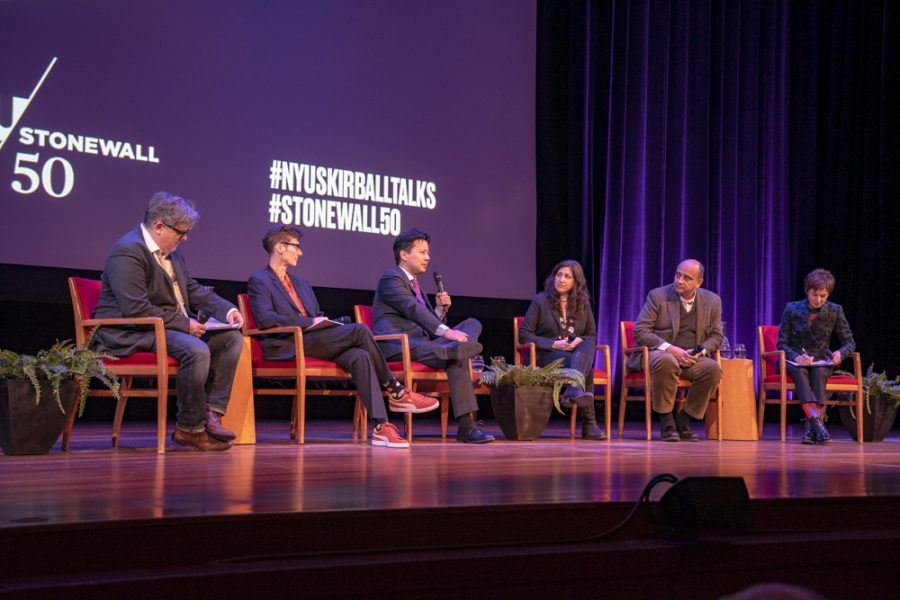In honor of the 50th anniversary of the Stonewall riots — which are often credited as the catalyst for the gay liberation movement — NYU Skirball hosted a discussion about how liberation is addressed in an academic setting.
The event started with a discussion about how each panelist learned about Stonewall. Gallatin Assistant Professor A.B. Huber spoke about an intimate moment with her partner behind a chain-link fence being interrupted by a man telling her that this wasn’t Stonewall, and they could not be intimate there.
The conversation quickly turned to the NYU community’s long-standing involvement in LGBTQ issues, including the 1970 occupation of Weinstein Residence Hall by members of the Street Transvestite Action Revolutionaries, who had participated in the Stonewall riots of 1969. Despite NYU’s support of the LGBTQ community today, STAR occupied Weinstein because because the NYU administration barred queer clubs from hosting events in NYU-owned spaces at the time.
“NYU is part of the ongoing echos of Stonewall,” said Professor of Performance Studies and Social and Cultural Analysis Professor Ann Pellegrini. “It’s really fascinating now; just 49 years ago, NYU was trying to shut down a queer presence on campus.”
In the discussion of how professors should teach movements like Stonewall in classroom settings, the panelists stressed how important it was to continuously bring up these issues.
“We can’t afford to not attend to these things,” Huber said.
Law Professor Kenji Yoshino echoed this sentiment.
“There’s nothing more liberatory than an idea,” Yoshino said.
The panelists also emphasized the importance of highlighting the historical disparities between different accounts of Stonewall. For example, members of the transgender community advocated for gay rights but saw little progress in their own push for greater visibility and equality. Marsha P. Johnson was a black transgender woman who threw the first brick that started the Stonewall riots — but was not recognized for her activism at the time.
High rates of poverty, drug use and HIV among the LGBTQ status were also discussed, with panelists calling for greater visibility of and aid for LGBTQ patients.
“Sometimes I feel like facts speak 1,000 words,” Rory Myers School of Nursing Assistant Professor Caroline Dorsen said. “The average life expectancy of a colored trans woman in this country is somewhere between 30 to 35 years of age.’
Dorsen said that while events like these can push the narrative about LGBTQ health issues forward, sometimes peoples’ stories are not enough.
Correction, Feb. 26: A previous version of this article stated that the occupation of Weinstein Residence Hall occurred before the Stonewall Riots. However, the Stonewall Riots took place in 1969 and the occupation of Weinstein Residence Hall took place in 1970. The article has been updated to reflect the correction.
Correction, Feb. 26: A previous version of this article incorrectly stated that “STAR occupied Weinstein because of the NYU administration’s elimination of queer clubs on campuses at the time.” However, NYU barred LGBTQ clubs from holding events in NYU-owned spaces, not from existing. The article has been updated to reflect the correction.
WSN regrets these errors.
Email Mansee Khurana and Jared Peraglia at [email protected]


























































































































































